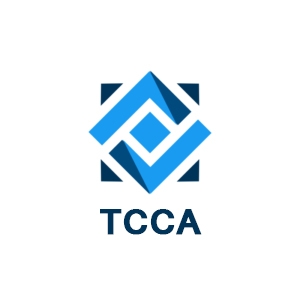REGISTRATION OF A PUBLIC LIMITED COMPANY
Incorporating a Public Limited Company is a suitable option for large scale businesses that require huge capital. There should be a minimum of seven members with no limit on maximum number of members/shareholders for starting a Public Limited Company.
Usually, Public Limited Companies get listed with stock exchanges to raise capital from the general public. This is why Public Limited Companies have to comply with multiple regulations of the government and starting a public limited company becomes a cumbersome process.
What is a Public Limited Company?
A Public Limited Company is defined under Section 2(71) of the Companies Act, 2013 as:
- a company which is not a private company
- a company with a minimum paid-up share capital of INR 5 lac.
Note : Under the Companies Act, 2013, a subsidiary company shall be deemed to be a public company if it is not a subsidiary to a private company, even if it is a private company as per its articles.
Checklist for Incorporating a PLC
| Minimum Paid-up share Capital | INR 5 lac |
| Minimum number of Directors | 3 |
| Maximum number of Directors | 50 |
| Minimum number of Shareholders | 7 |
| Maximum number of Shareholders | No Limit |

Documents Required for PLC Registration
- Passport sized photographs of all the Directors
- Copies of the Identity documents of all the Directors- Aadhar Card, Voter Card, PAN card
- DSC (Digital Signature Certificate) of all the Directors
- DIN (Director Identification Number) of all the Directors
- In case the office is in a rented property – the rent agreement
- In case the office is an owned place – the property ownership documents
- The water bill and the electricity bill of the business place
- No Objection Certificate by the Landlord
- Memorandum of Association (MoA)
- Articles of Association (AoA)
It is necessary that all the documents pertaining to registration of a Public Limited Company are in order to avoid any legal complications later on.
PROCESS OF REGISTRATION OF A PUBLIC LIMITED COMPANY
- 1
Fulfilling all the Legal Requirements for Incorporation
First off, it is necessary that the legal requirements of minimum-paid up share capital, number of directors, number of shareholders, have been identified and fulfilled. Only if this step is complete, further steps of registration can be implemented.
- 2
Obtaining DIN and DSC for all the Proposed Directors
Once it has been established who all would be the directors of the company, their DIN from the Ministry of Corporate Affairs and DSC from the Certified Authority has to be obtained.
The directors can only be individuals and not entities like LLPs or Financial Institutions. Also, the number of directors cannot exceed 50. It is not necessary for the Director to be the Shareholder of the Company
- 3
Registered Office
It is necessary to have a proper address to be recognized as the Registered Office of the Company. The Registered Office address has to be registered with Registrar of Companies (ROC) under whose jurisdiction the office location falls. All the correspondence related to business are made to the Registered Office by the ROC. The fee for registration shall be dependent on the authorized capital of the company.
- 4
Application for Company Name
Prior to the registration procedure, the name of the Company has to be approved by the ROC. It is mandatory that the name of the Public Limited Company ends with the word “Limited”. This application is filed in the RUN form of the Ministry of Corporate Affairs. It is better to provide a list of names in order of preference, in case a particular name is not available.
- 5
Execution of Company Registration Documents
Once the name approved, then other documents of the Company will be executed MoA and AoA . These documents have now gone electronic and can be prepared and submitted accordingly.6
Submission of Documents to ROC
Once all the documents have been prepared, they are submitted to the ROC for verification.
- 7
Registration and COI
Upon proper verification of all the submitted documents, the ROC registers the company and issues a Certificate of Incorporation along with the CIN (Corporate Identification Number) of the Company.
- 8
Certificate of Commencement of Business
A Public Limited Company cannot start its business immediately upon receiving the COI. It has to apply for Certificate of Commencement of Business within 180 days of receiving the COI, stating that all the subscribers have paid the subscription money.
ANNUAL COMPLIANCES OF A PUBLIC LIMITED COMPANY
Annual compliances of a Public Limited Company differ for an unlisted Public Limited Company and listed Public Limited Company.
Compliances for an Unlisted PLC
- Board meetings:&nbps;An unlisted Public Limited Company is required to hold at least 4 Board meetings in compliance with Section 173 of the Companies Act, 2013.
- Appointment of a Cost Auditor : The auditor is required to be appointed as per Section 148(3) along with Rule 6(2) and Rule 6(3A) of the Companies (Cost Records and Audit) Rules, 2014. For this, Form CRA-2 has to be filed.
- It is pertinent to mention that original appointment of the auditor has to be done within 30 days of Board meeting or 180 days of Financial Year, whichever is earlier. When a casual vacancy arises, the same has to be filled within 30 days.
- Return of Deposits : This has to be filed with the ROC under whose jurisdiction the company falls via Form DPT-3, in compliance with Rule 16 of Companies (Acceptance or Deposit) Rules, 2014.
- Appointment of CFO or CS or CEO : Section 203 read with Rule 8 & 8A of the Companies (Appointment and Remuneration of Managerial Personnel) Rules, 2014 requires appointment of CFO or CS or CEO within 30 days of AGM or within 6 months in case of casual vacancy. For this, Form MGT-14 and Form DIR-12 are filed.
- Annual General Meeting : AGM for declaration of dividend has to be conducted in compliance with Section 96 of the Companies Act, 2013.
- CSR Committee : CSR Committee has to hold four meeting with a gap of not less than 120 days between two meetings for discussion and approval of CSR activities. This is done in compliance with Section 135 of the Companies Act, 2013 read with Companies (Corporate Social Responsibility Policy) Rules, 2014 and Secretarial Standard-1.
- Director’s Disclosure : Director’s are required to disclose any financial interest in the company via Form MBP-1in compliance with Section 184(1) of the Companies Act, 2013 read with Rule 9(1) of the Companies (Meetings of Board and its Powers) Rules, 2014
Compliances for an Listed PLC
- Annual General Meeting : Annual General Meeting has to be held in accordance with Section 121(1) of the Companies Act, 2013. Form MGT-15 has to be filed once the AGM has been conducted.
- Financial Statements : The financial statements of the company have to be filed as per Section 137 of the Companies Act, 2013, read with Rule 12(2) of the Companies (Accounts) Rules, 2014. The financial statements consist of Balance sheet, Cash Flow Statement, Director’s Report, Auditor’s Report and the combined Financial Statement which is prepared in XBRL (Extensible Business Reporting System). This is filed via Form AOC-4.
- Annual Return : This has to be filed in accordance with Section 92 of the Companies Act, 2013, read with Rule 11(1) of the Companies (Management and Administration) Rules 2014. The annual return contains information pertaining to the directors and shareholders and is required to be filed in Form MGT-7 with the relevant ROC.
- Financial and Director’s Report : Adoption of Financial and Director’s Report has to be done in consonance with Section 173 of the Companies Act read with Secretarial Standard 1. Its filing is done via Form MGT-14.
- Income Tax Returns : This has to be filed with the Tax Department in Form ITR-6 on or prior to September 30th of the Financial Year.
- Secretarial Audit Report : Submission of Secretarial Report is a requirement under Section 204 of the Companies Act, 2013 read with Rule 9 of The Companies (Appointment and Remuneration Personnel) Rules, 2014. Secretarial Report has to be submitted only when the company’s total Paid-up capital is equal to or crosses INR 50 crores or its annual turnover is equal to or exceeds INR 250 crores. This has to be filed via Form MR-3.
- Other compliances : These include the rules and regulations laid down by SEBI. Listed companies have to comply with the Listing Regulation of 2015.

ADVANTAGES
- Separate Legal Entity : A Public Limited Company is considered as a separate legal entity from its shareholders. It has a perpetual existence and can have its own PAN, bank accounts, approvals, contracts, licenses, assets and liabilities.
- Multiple avenues of funding : Public Limited Company can raise funds from individuals as well as from financial institutions. The funds may be raised via equity shareholding, preference shareholding or debentures.
- Easy transferability of shares : This is one of the biggest advantages of a Public Limited Company. The shares can be easily transferred by a shareholder to other legal entities – be it an individual or an organization, in India or abroad. The directorship of the company can also be changed for ensuring business perpetuity.
- Limited liability : The shareholders of a Public Limited Company are given Limited Liability Protection. In a situation of unexpected liability, the same would be limited only to the company and not affect the shareholders.
- Class 2 digital signatures with 2 year validity on secure USB token.
- Up to 4 name options can be given in 1 RUN name approval request.
- Authorized capital is the amount of shares a company can issue at anytime and can be increased further in the future. Paid-up capital is the amount invested by shareholder and can be even Rs.2.
- In case of Rs.10 lac authorized capital, than stamp duty will be cost by in Rs.5120 will be chargeable extra for the state of Gujarat. Rs.5510 will be the additional stamp duty charges for state of Rajasthan. In case of incorporation in Madhya Pradesh, an additional stamp duty of Rs.7550 will be applicable. In case of incorporation in Punjab, an additional stamp duty of Rs.15025 will be applicable. In case of Kerala, an additional stamp duty of Rs.3025 will be applicable.
- Business Current Account and Payment Gateway powered by ICICI Bank Limited. Subject to terms and conditions of ICICI Bank Limited.
- Premium LEDGERS Accounting Software with GST Portal Integration and eWay Bill Software.
- Statutory Auditor fee is payable on actual directly to the Independent Auditor appointed by the Board of Directors.
